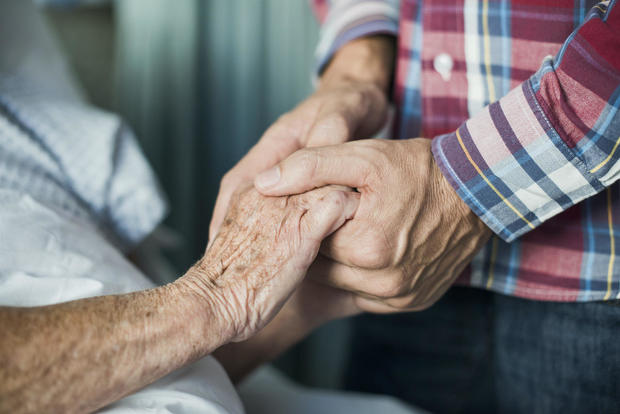3 reasons seniors should get medical alert systems
While we may not want to admit it, sometimes we need some help.
In fact, almost everyone invests in some form of coverage plan. A home security system protects your possessions, life insurance helps cover your family, and medical alert systems help you in the event of an emergency.
Whether you live alone or you enjoy traveling or adventurous activities, there are medical alert devices that can fit your lifestyle. And they're easier than ever to shop for online. If you or someone you know needs a medical alert device, start your search now.
3 reasons seniors should get medical alert systems
Not only do medical alerts offer peace of mind but they can actually save your life. If you have an accident or are in need of assistance, a medical alert system can help connect you with an emergency contact or an ambulance.
Let's get into the specifics. Here are three reasons for seniors to get medical alerts:
Fall detection
Roughly 36 million falls are reported among elderly Americans each year, resulting in more than 32,000 deaths, according to the Centers for Disease Control and Prevention (CDC). Broken bones and head injuries are among the top concerns after a fall.
"Every second of every day, an older adult (age 65+) suffers a fall in the U.S.-making falls the leading cause of injury and injury death in this age group. One out of four older adults will fall each year in the United States, making falls a public health concern, particularly among the aging population," the CDC writes on its website.
That's why it's essential that anyone who experiences a fall gets immediate assistance. Most medical alert providers give consumers the option to add fall detection to their plans. This type of technology works with your wearable devices and can help identify when you've fallen, automatically triggering a call to a 24/7 monitoring center that offers "lightning-fast" responses.
Learn more about fall detection and other add-on services available with medical alert systems. Browse some of the best medical alert providers now.
24/7 monitoring
A team of operators is available 24 hours a day to answer calls and offer assistance at the push of a button.
If you're experiencing a medical emergency, you can press your medical alert help button and get dispatched to a call center, where someone will ask you questions, assess the situation and determine what kind of help you need. If you're unable to speak, then the operator will call an emergency medical team to your location.
"Medical alert systems or personal emergency response systems, are devices that signal a monitoring center in critical emergency situations to summon help from professional emergency medical personnel. They can also alert emergency contacts such as family members, neighbors, and caregivers. When a Medical Guardian device is activated, typically by pressing a button, the user will be connected with a 100% U.S.-based, Five-Diamond Certified monitoring center, which will assess the situation to secure help in case of an emergency," Medical Guardian explains on its website.
GPS tracking
Most devices come equipped with GPS tracking, helping family members and emergency medical teams locate you easily in the event of an emergency.
This is particularly critical for any elderly person with a form of dementia. According to recent CDC data, an estimated 6.5 million Americans are living with Alzheimer's disease, making it the most common cause of dementia among the elderly.
There are a variety of wearable devices - from watches to necklaces - to choose from that have wireless connectivity and GPS. In the event of an emergency, you can press a button and your device operators, emergency contacts and emergency medical teams will be able to easily find you to provide assistance.
Types of medical alert systems
The cost of medical alert systems varies based on the system type, features and functionalities of the product. Most systems typically cost anywhere between $20 to $30 per month, excluding equipment, installation or activation fees, according to the National Council on Aging. You may also have to pay more if you require specific services.
There are typically two types of systems you will need to consider:
- On-the-go systems: You're looking for a wearable or handheld device that can easily move with you or your loved one wherever you go. This includes products like smartwatches, a portable GPS fall-detection button, a well-connected mobile GPS equipped with 4G, WiFi, GPS or more.
- Home systems: You want a home-based system equipped with a smart voice assist button that syncs with a designated necklace or wristband. You can also get an at-home device that connects to your landline (if you don't have mobile connectivity) and also syncs with a necklace or wristband. Both of these types of systems offer a long-lasting battery life and up to 1,400 feet of protection.
There's a variety of medical alert systems to choose from on sites like Medical Guardian, which you can sort by technical features and available add-ons, such as full detection, a wall-mounted help button and special alerts.
